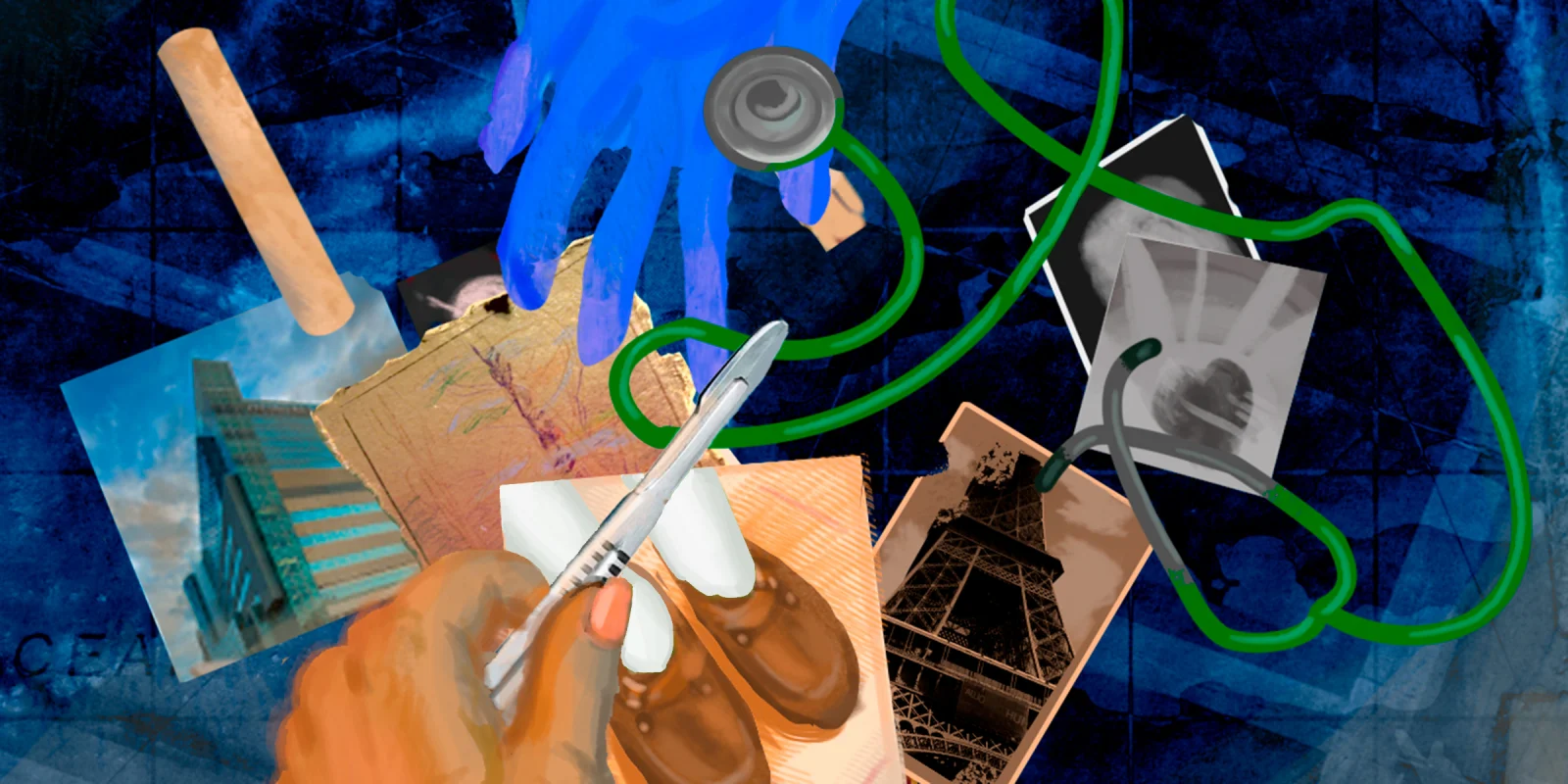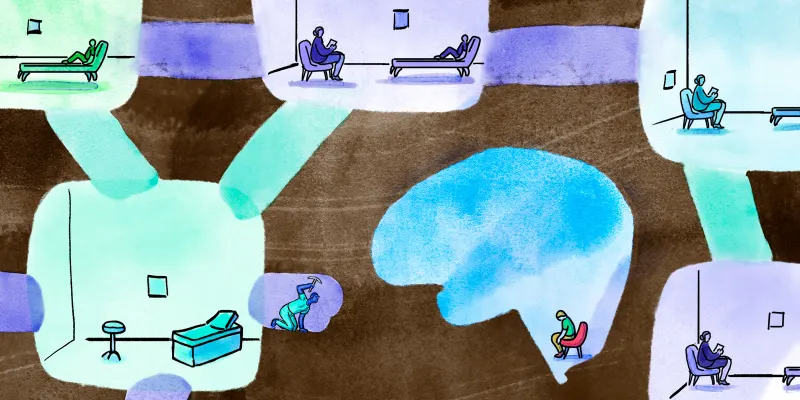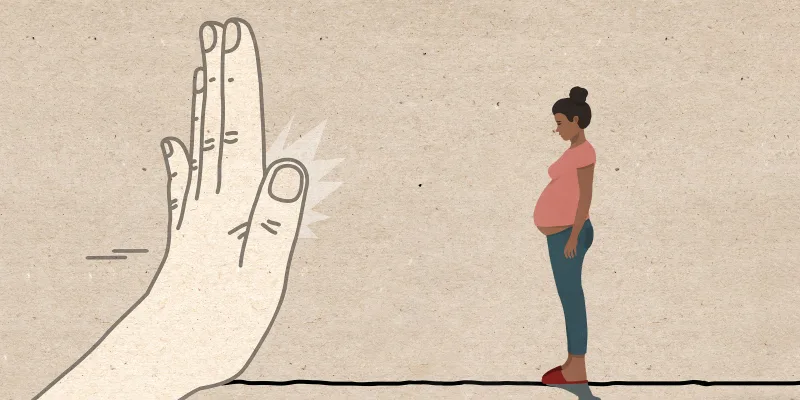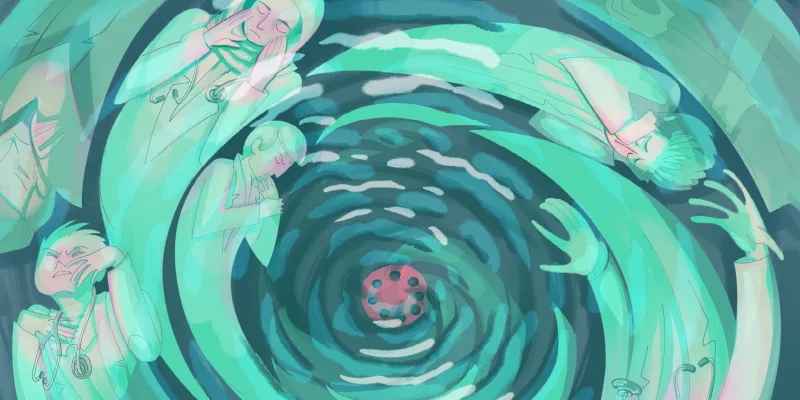It might be a certain word. It might be a day of the week. It might even be an article of clothing or a pair of shoes — but whatever it is, whatever you’ve deemed “lucky,” I would venture a guess that nearly everyone in medicine has a superstition like yours.
For me, it’s the socks. I’ve been on Team White Socks from the beginning. Some people can get away with crazy designs or colored compression socks, but not me. And darker shades might look a little nicer, but are they worth the risk? What if I have a call shift where I’m just trying to keep my head up, barely treading water? I can’t chance wearing socks that are any different than my usual. I also don’t like to wear disposable glasses that have a black or red frame; I prefer not to work under a full moon; and I really don’t like for anyone to say that it’s a “quiet” night. Before I work a call shift, I have to eat the same thing at the same time.
Superstitions (from the Latin root meaning “to stand in awe of”) have existed for centuries as a way to handle fear of the unknown and explain the incomprehensible. Indeed, life is full of the unexpected, good and bad, and at times it seems to defy logic and skirt what seems like the natural order. Medicine, especially, is full of surprises, unusual recoveries, mysterious illnesses, or sudden aggressive downturns in health. It makes sense, then, that medical professionals would harbor superstitious beliefs, too. After all, ritualistically performed actions can help us to predict the unpredictable — can’t they?
In the world of obstetrics, we often rehearse emergencies. The field is known for its variability, large stretches of calm interspersed with sudden and sometimes very unexpected emergencies. In part, the routines help to preemptively calm my mind before what could be either a manageable or challenging shift. But the routines are also valuable in the actual moments of emergency — when they’re ingrained through training, they manifest instinctually during the difficult times.
Shoulder dystocia is a good example of the type of emergency for which I’ve found rehearsal valuable. It’s an emergency where, during a vaginal delivery, the baby’s head crowns but the anterior shoulder gets stuck at the pubic symphysis. In patients who are at risk for shoulder dystocia, we prepare in advance. We plan ahead to have extra hands in the room, we have procedures in place for how to notify all of the staff that an emergency is happening, and we have the supplies that we need ready to go. Sometimes it happens for women we have identified as high risk, but often it is completely unexpected.
For one of my patients, it was the latter. She had just begun her pushing efforts as I assumed my shift; it was her third baby, and delivery was expected at any time. As I waited and encouraged her, the baby’s head seemed to be moving forward very slowly. I thought about the many drills and simulations for shoulder dystocia I had completed in my years of training. I reviewed the steps in my head and, sure enough, as the baby’s head crowned, it was clear that the shoulders would not be following quite as easily. Like a dance we had rehearsed, the nurses and I took the first step and then the next, and the next, until the baby was safely delivered. We followed the routine, but somewhat imperceptibly alongside that, our internal selves walked down a path that was laid before for the event. Certainly I was wearing my white socks — what role did they play here?
My rational mind knows that there is no correlation between my sock color and the patients I care for while wearing white socks. The world is unaffected by the clothes I wear. Logically, I can see what my sock superstition is all about. It is simply that I seek to exert control where none exists. My rational mind has convinced my nervous soul that even in the direst of situations, so long as I follow my “random rules,” life will arrange itself just so to manifest the best possible outcome.
At a Moth event in 2015, John Turturro spoke about the New York City blackout of 2003. “We imagine that we live in the light,” he said. “We imagine we can foresee what’s gonna’ happen. We imagine we can control everything. But the reality is, almost all of us are just stumbling along in the dark, searching, trying to reach some kind of home, while we’re juggling all these balls and hopefully on most days keeping them afloat.”
I think of superstition a little bit like that. In medicine, it’s not so much that we are “stumbling along in the dark.” The work we do is the labored fruit of years of hard work and ongoing study and practice. The work we do is also of utmost consequence. We have to stay updated on new developments in our fields, practice evidence-based medicine, and use tools like checklists and timeouts to make sure we are being safe and responsible clinicians. Simulation and drills prepare us for unusual or emergency events. Establishing patterns and algorithms create blueprints for making the best choices, every time.
But it’s also true that even if we are as prepared as possible, we cannot control everything. We don’t know what’s up ahead, but that doesn’t mean we can’t thrive in the place of unknowing. While our superstitions may not help in any measurable way, the comfort of routine and ritual can help us to feel safe, calm, and prepared, especially walking into an unpredictable day of clinic or chaotic shift at the hospital.
For me, it is soothing to know that my white socks are always with me. I feel comforted that my shoes, the pair that has been present for every good and bad thing I’ve experienced at work, are on my feet. I like thinking that nature may be cosmically on my side when the moon isn’t full, even if I know that someone saying a certain word, or a Friday happening to fall on the 13th of the month doesn’t really change anything about my day. I am the same physician with the same experience, knowledge, and resources. However, medicine is also a mental game. It’s not only algorithms and emergency preparedness that make the unexpected seem routine — it’s also the patterns and self-imposed sameness that steadies the hand and settles the mind. These little “life edits” have the power to help us be more ready for whatever lies ahead, good or bad, day or night, come what may, wherever our white socks may carry us.
Do you have superstitions that make your days in medicine feel a little more within your control? Share your “life hacks” in the comments!
Jill Moes is an obstetrician/gynecologist working in St. Paul, MN. She loves fireworks, weddings, books, thinking about life, and trying to keep up with her three busy boys. Dr. Moes is a 2021–2022 Doximity Op-Med Fellow.
Illustration by Jennifer Bogartz







